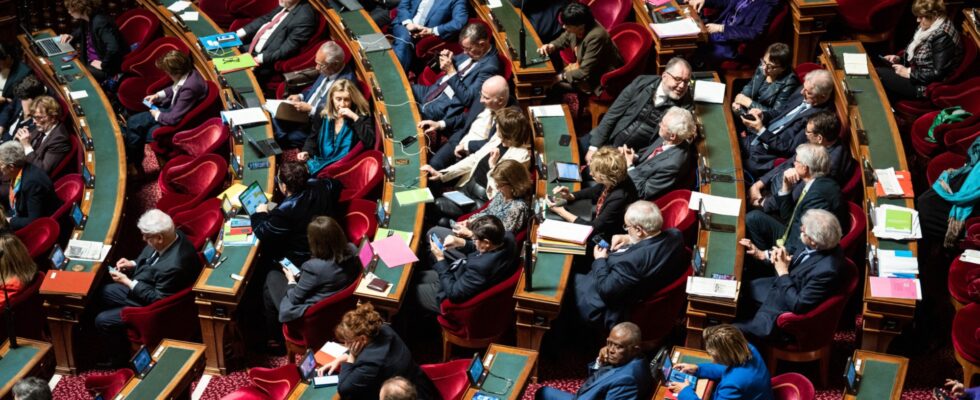Reinforcement of sanctions, new bans: after the National Assembly, the Senate unanimously adopted at first reading a bill aimed at better regulating the activity of influencers and combating abuses on social networks.
“I’m just trying to unmask these ‘influencers'”
Deputies and senators will now try to agree in a joint health committee on a common version of this transpartisan text, supported by Bercy, which gives a legal definition to influencers and prohibits certain practices. With an estimated number of 150,000 influencers in France, of which only 15% would carry out this activity full-time, this booming sector is in the sights of associations, but also of the government.
For the Minister of SMEs Olivia Grégoire, the bill “fills a legal void” and responds to “a popular demand for better regulation”. “It is not a law for or against advertising, for or against young people (…) it is a law of economic regulation in the service of a nascent profession”, she underlined.
Having become for some of the stars with millions of subscribers, influencers disseminate content on social networks that can greatly influence behavior, especially among the youngest.
The Directorate General for Competition, Consumer Affairs and Fraud Prevention (DGCCRF) has published a damning study on their practices. Rapper Booba also served as a sounding board by attacking the high priestess of influencers Magali Berdah, who called him a “stalker”.
The influencer was heard by the rapporteur for the text in the Senate, Amel Gacquerre (centrist), the rapper having for his part indicated that he would not go to the Luxembourg Palace.
“I’m not looking to do politics, just to unmask these ‘influencers’ and fight the culture of emptiness. (…) Condemn them, punish them, thank you,” he tweeted. The Minister of the Economy Bruno Le Maire for his part announced last week that Bercy would make public “in the coming days” the names of influencers, around thirty, “who have not respected the rules” already in force.
“Obstacle Denial”
The senators have reinforced the penalties if the advertising bans are not respected or if an influencer conceals the true commercial intention of his publication: up to two years of imprisonment (instead of 6 months in the text voted by the deputies) and 300,000 euro fine.
They have provided that influencers have the obligation to display the unique mention “Advertisement” on their commercial publications.
To the prohibitions planned by MEPs, such as the promotion of cosmetic surgery, they added, at the initiative of the rapporteur, the prohibition of the promotion of therapeutic abstention, nicotine sachets, the sale of which on the Internet is developing among teenagers, or subscriptions to sports betting predictions. They also want to force influencers promoting gambling to display a notice: “No one under 18”.
Against the advice of the government, an amendment by Jacqueline Eustache-Brinio (LR) was also voted to prohibit any promotion on social networks “undermining the protection of public health”. And another from Arnaud Bazin (LR) to prohibit influencers from staging themselves with animals whose keeping as pets is prohibited in France.
But as in the Assembly, the amendments of the left to prohibit the promotion of gambling and gambling, alcoholic beverages or food products that are too fatty, salty or sweet have been rejected.
“We will have to move towards influencer status”
“Be careful not to stigmatize influencers,” warned the rapporteur. The senators have also removed with the consent of the minister the prohibition, torn from high struggle in the Assembly, for those under sixteen to promote this type of food. The ecologist Daniel Salmon regretted a “refusal of obstacles” from the senatorial majority on certain points, while the socialist Rémi Cardon expected “to go much further”.
“We will have to move towards influencer status,” added the communist Fabien Gay. “The government and the majority of senators have preferred to support the questionable and illegal practices of alcohol lobbies, rather than acting for the general interest”, reacted the association Addictions France to AFP.
